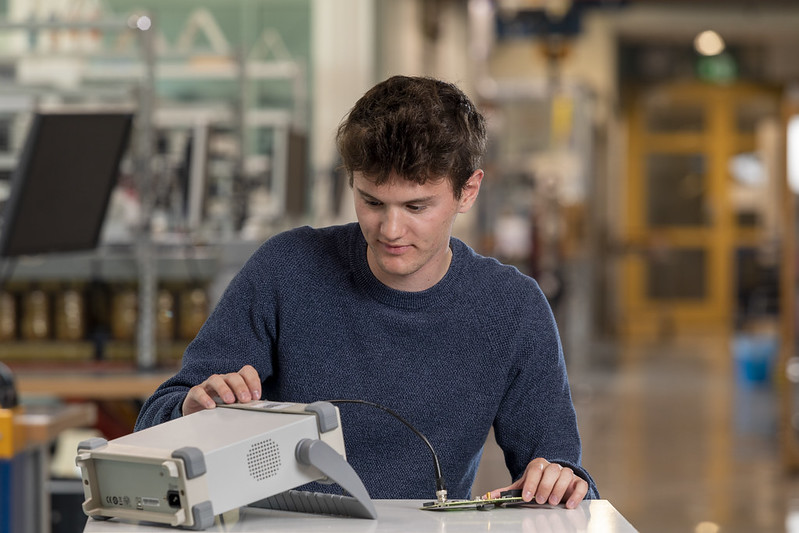Develop new business driven by digitalisation in energy

Digital Business and Venturing for Energy Engineers is a tailored course that equips energy engineers with critical business and venturing skills needed in the rapidly developing digital environment. The course aims to enable participants to develop new digital businesses, become entrepreneurs or promote innovations within an existing company. This course is particularly recommended for those participating in the InnoEnergy Masters+ entrepreneurship competition, Green Seed Journey.
Throughout the course, participants will learn how to recognise new business opportunities driven by digitalisation in energy and understand digital technologies that have an impact on the energy sector. Students will also discover the success factors of business models in the energy industry by analysing real-world business cases and applying their learnings to a business idea. Additionally, the course addresses must-know business themes for any growth business leader in the energy sector, such as financial statements, business strategy, company financing, and innovation management. Students will develop interaction and presentation skills, as well as master financial literacy, financial modeling, capital budgeting, opportunity recognition, value creation and capture, intellectual property rights, business plans, digitalisation and digital transformation.
This course is offered in cooperation with EIT InnoEnergy partner Aalto Advisors.
Overview
Course dates: February 26 (Wednesday) to April 4 (Friday)
Delivery: Live online course.
Course costs: 1,950 EUR (this course is free of charge for InnoEnergy Masters+ students)
Effort Level: 62 hours (equivalent to 2 ECTS)
- Live online sessions: 24 hours.
- Applying the learnings to your own business case: 38 hours.
Pre-requisites: This course is open only to first and second year students of InnoEnergy Masters+ programmes.
Registration: Monday, 27 January – Sunday, 9 February (midnight)
Final application results will be communicated to applicants the week of 10 February
SIVARAMAN KARTHIKEYAN
What will you learn?
You will learn how to implement the following activities in an energy startup:
- Pricing & revenue generation
- Value capture & value proposition
- Go-to-market strategy
- Product development
Intended learning outcomes are as follows:
- Theme 1: How to implement pricing & revenue generation in an energy startup
- Theme 2: How to implement product development in an energy startup
- Theme 3: How to implement go-to-market strategy in an energy startup
- Theme 4: How to implement value capture & value proposition in an energy startup
How will you learn?
Digital Business and Venturing for Energy Engineers uses modern interactive pedagogical methods, including coaching, learning by doing, and flipped classrooms.
Previous editions of the course worked as follows:
In the beginning of each week, students receive an assignment to implement weekly thematic learnings in their own projects. Students present the results of the assignments on Fridays during flipped classroom sessions, followed by discussion and coaching aimed at improving the students’ own projects. If a student does not have a venture creation project, the student can also complete the weekly assignment by presenting on Friday the key takeaways from the Wednesday sessions. The students can work in teams or individually to complete the weekly assignments. The results of the assignments are presented in the form of a brief slide show presentation.
Wednesday sessions are focused on industry examples and theoretical frameworks. Friday sessions are focused on flipped classrooms, in which students present the completed weekly assignments, followed by discussion and coaching.
What will you achieve?
- Concrete knowledge and skills in digital business and venturing in the energy industry.
- Certificate of achievement from EIT InnoEnergy.

